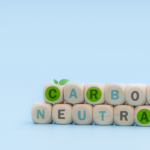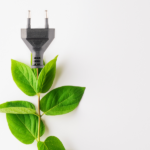In today’s rapidly evolving world, the need for ecofriendly power solutions has become more important than ever before. As we strive to mitigate the effects of climate change and reduce our dependence on fossil fuels, embracing ecofriendly power sources has emerged as a crucial step towards a sustainable future. In this article, we will explore the longterm benefits of ecofriendly power and shed light on how it can positively impact our environment, economy, and overall well-being. So, let us delve into the world of renewable energy and uncover the numerous advantages it brings.
The Power of Renewable Energy

Renewable energy, often referred to as ecofriendly power, is derived from sources that can be naturally replenished and do not produce harmful emissions or pollutants. These energy sources include solar power, wind power, hydroelectric power, geothermal power, and biomass energy. By harnessing these clean and sustainable sources, we can significantly reduce our carbon footprint and pave the way for a brighter and greener future.
Advantages of Ecofriendly Power

1. Environmental Preservation
One of the most significant longterm benefits of ecofriendly power is its positive impact on the environment. Unlike traditional forms of energy generation, renewable sources do not produce air or water pollution, contributing to reduced greenhouse gas emissions and improved air quality. By transitioning to ecofriendly power, we can mitigate the adverse effects of climate change, protect natural habitats, and preserve biodiversity for generations to come.
2. Mitigating Climate Change
The transition to ecofriendly power is crucial in combating climate change. Fossil fuel combustion and deforestation have led to an alarming increase in greenhouse gas emissions, resulting in global warming and its catastrophic consequences. By shifting towards renewable energy, we can reduce our reliance on fossil fuels and slow down the pace of climate change, safeguarding our planet for future generations.
3. Energy Security and Independence
Investing in ecofriendly power sources enhances energy security and reduces dependence on imported fossil fuels. Unlike finite fossil fuel reserves, renewable sources are abundant and widely available. By harnessing the power of wind, sun, water, and earth, countries can enhance their energy independence, decrease vulnerability to geopolitical uncertainties, and cultivate a more resilient and self-sufficient energy system.
4. Job Creation and Economic Growth
The shift towards ecofriendly power presents immense opportunities for job creation and economic growth. The renewable energy sector is a rapidly expanding industry that fosters employment across various domains, such as manufacturing, installation, maintenance, and research. By investing in clean energy technologies, countries can stimulate local economies, attract investments, and create high-quality, sustainable jobs.
5. Cost Efficiency and Affordability
Contrary to popular belief, ecofriendly power is becoming increasingly cost-effective and affordable. Rapid advancements in technology have led to a significant reduction in the cost of renewable energy infrastructure, making it a financially viable option for both individuals and businesses. Moreover, renewable energy sources, such as solar power, offer long-term savings by eliminating or significantly reducing electricity bills.
6. Health Benefits
The utilization of ecofriendly power has profound health benefits for both individuals and communities. Traditional sources of energy, such as coal and oil, emit harmful pollutants that pose serious health risks, including respiratory diseases, cardiovascular problems, and premature deaths. By transitioning to renewable energy, we can improve public health, reduce healthcare costs, and enhance the overall well-being of society.
7. Innovation and Technological Advancements
The pursuit of ecofriendly power fuels innovation and technological advancements. As we strive to harness the full potential of renewable energy, we push the boundaries of science and engineering, leading to groundbreaking discoveries and inventions. The development of more efficient solar panels, wind turbines, and energy storage systems has the potential to revolutionize the way we generate and utilize power, opening up a world of possibilities.
8. Sustainable Development
Ecofriendly power plays a fundamental role in fostering sustainable development. By embracing renewable energy sources, we align ourselves with the principles of environmental stewardship, social inclusivity, and economic prosperity. The integration of clean energy into various sectors, such as transportation, agriculture, and manufacturing, paves the way for a greener, more resilient, and equitable society.
Frequently Asked Questions

Q: Is ecofriendly power reliable and consistent?
A: Yes, ecofriendly power is reliable and consistent. While the availability of renewable energy sources, such as solar and wind, may vary based on weather conditions, advancements in technology have enabled the development of efficient storage systems. These systems ensure a consistent and reliable supply of ecofriendly power, even during periods of low natural resource availability.
Q: How can I contribute to the adoption of ecofriendly power?
A: Individuals can contribute to the adoption of ecofriendly power by making small changes in their daily lives. This includes installing solar panels on rooftops, using energy-efficient appliances, opting for electric vehicles, and supporting policies that promote renewable energy adoption. Every small step towards reducing carbon emissions counts and collectively makes a significant impact.
Q: Does ecofriendly power lead to job loss in traditional energy sectors?
A: While the transition to ecofriendly power may lead to certain displacements in traditional energy sectors, it also presents vast opportunities for job creation. As the demand for renewable energy grows, the workforce will shift towards clean energy industries, creating new jobs and supporting economic growth. Moreover, workers in traditional energy sectors can undergo retraining programs to transition into renewable energy roles.
Q: Are there any potential drawbacks of ecofriendly power?
A: While ecofriendly power offers numerous benefits, there are a few potential drawbacks to consider. The intermittent nature of certain renewable energy sources, such as solar and wind, requires effective energy storage solutions to ensure a consistent power supply. Additionally, the initial investment in renewable energy infrastructure can be relatively high, although the long-term cost savings justify the upfront expenses.
Conclusion

Ecofriendly power not only offers a sustainable solution to our energy needs but also provides us with a multitude of longterm benefits. From mitigating climate change to fostering economic growth and improving public health, the advantages of embracing renewable energy sources are undeniable. As individuals, communities, and nations, it is our collective responsibility to transition to a more sustainable future powered by ecofriendly alternatives. By doing so, we ensure a prosperous and thriving planet for future generations to come. So let us embark on this journey towards ecofriendly power and shape a brighter tomorrow.




